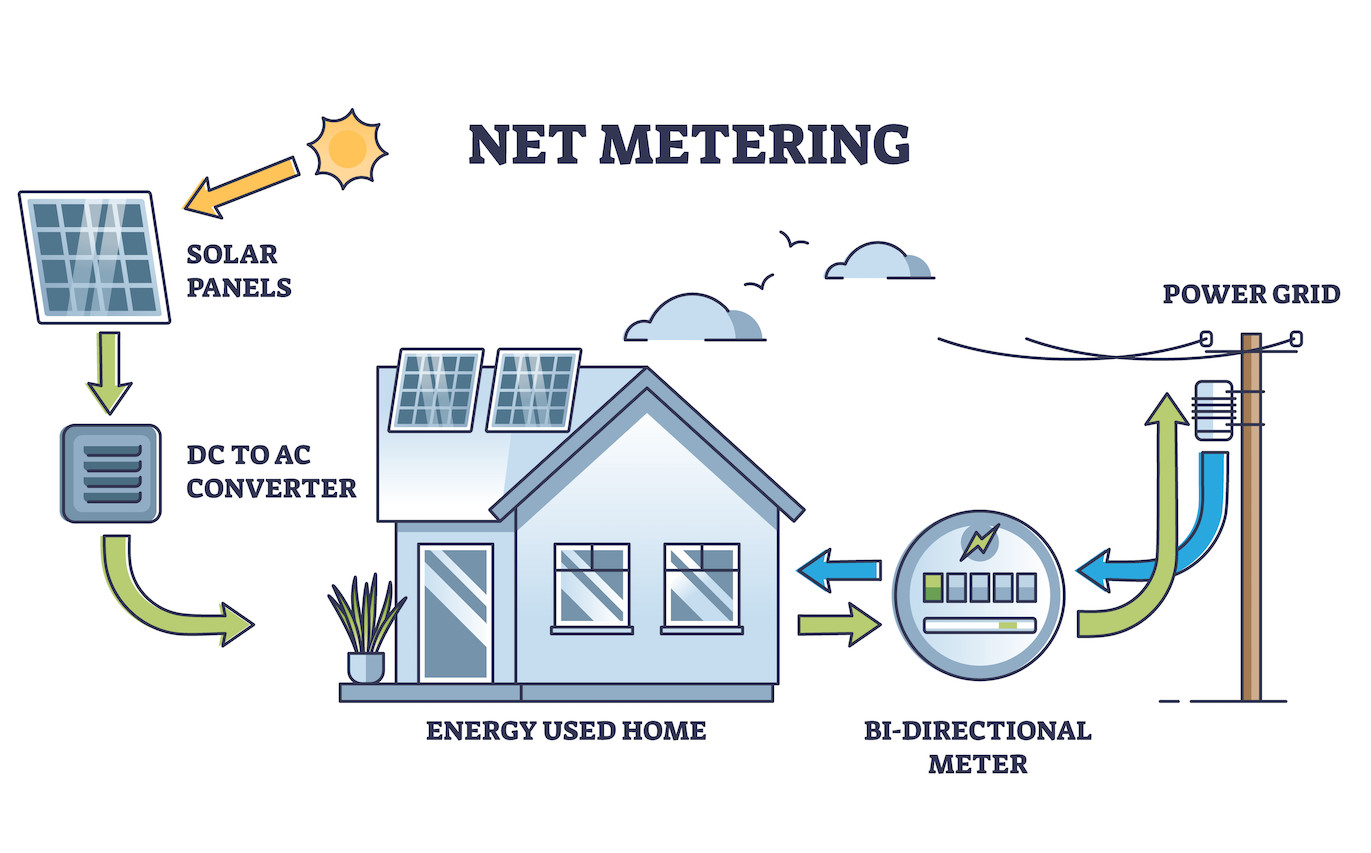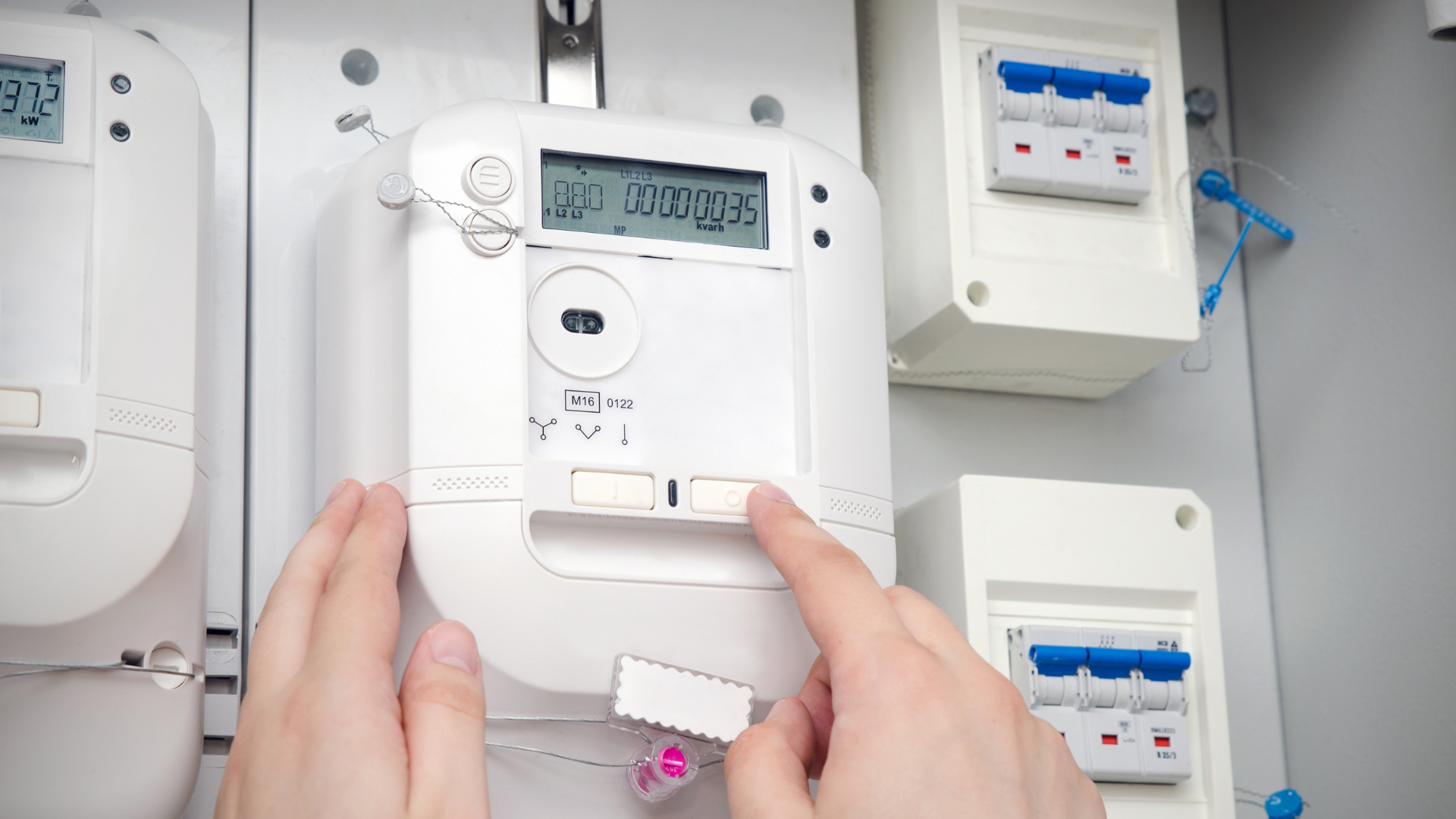Net metering and net billing are some of the most common terms you encounter when you go solar. Although they sound almost similar, they carry distinct meanings. This piece highlights the differences between net metering vs net billing so that you can choose the best way to manage surplus solar energy.
What Is Net Metering?
Net metering is an arrangement whereby a utility company allows you to channel surplus solar energy to the grid. In return, you receive credits worthy of the power you export. When your solar energy system cannot produce enough power, your utility allows you to redeem the credits for grid power. Your utility company uses a bidirectional meter to keep track of this exchange.
Pros of Net Metering
Net metering eliminates the need for costly energy storage solutions. Instead of buying batteries, utility companies bank the surplus solar energy for you. You only need a single bidirectional meter to ensure a fair exchange of energy between you and your utility company.
Cons of Net Metering
As a generator of solar power, you earn back 75-100% of the excess energy you contribute to the grid depending on your state. This means that you are likely to lose some money for the solar power generated.
Moreover, net metering is subject to local policy changes, like the adoption of the NEM 3.0 billing structure which reduced the net metering credit in CA by 75%, making excess power only worth 25% of what it used to be in CA. These policy changes can affect the return on investment you get from surplus energy you send to the grid.
What Is Net Billing?
Net billing entails selling excess solar power to a utility company at a wholesale rate. Thus, instead of receiving redeemable credits, you get paid for the energy you add to the grid.
Again, in this program, your utility company uses a bidirectional meter to determine the amount of energy you send to the grid for fair compensation. The rates for surplus solar energy differ from one state to another.
Pros of Net Billing
Net billing enables you to convert your solar energy system into a revenue-generating project. So, instead of producing power for individual use, you can focus on generating extra solar energy for sale.
Cons of Net Billing
The arrangement gives you limited control over the rates and regulations of energy sales. As such, your utility company buys the surplus energy from you at a rate they want.
Net Metering vs Net Billing: Which Is Better?
As of now, only three states use net billing, making net metering the common option for a majority of Americans. Net metering tends to be a more beneficial choice since it provides more value for your surplus solar energy. Moreover, net metering is straightforward, as it entails the exchange of energy for power, not money.
Net billing is a great option for those with enough space available and wanting to cover their energy usage completely. With a large enough solar system, you can create more electricity to compensate for the difference between the wholesale and retail costs.
Get More Value From Your Solar Energy
The surplus solar energy you produce doesn’t have to go to waste. You can sell it at a wholesale price to a utility company to get some dollars back. Alternatively, you can export the excess power to the grid for redeemable energy credits. Working with an experienced solar installer like Solar Optimum can help you make the transition smoothly. Download our Ultimate Guide to Going Solar or contact us today to learn more about net metering and net billing.






